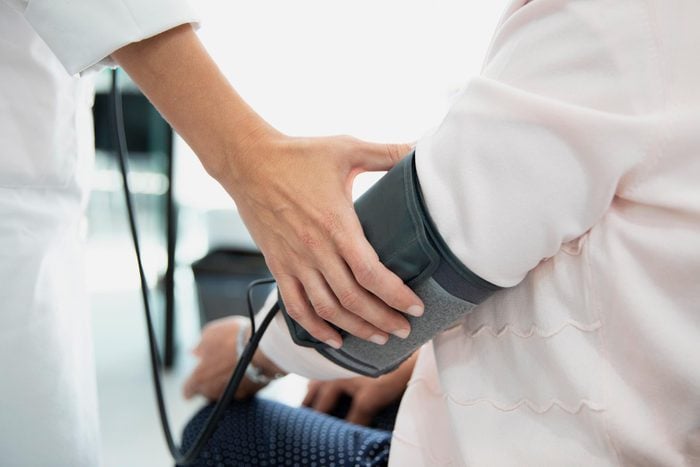
Almost half of Americans over age 20 have high blood pressure, according to a 2023 report from the American Heart Association (AHA)—and data suggests 38% aren’t even aware they have it. Yet high blood pressure is the leading cause of death globally, accounting for more than 690,000 deaths in the US in 2021 alone.
“High blood pressure is called the silent killer since it usually does not cause any symptoms,” says Ernst von Schwarz, MD, a triple board-certified cardiologist, clinical professor of medicine at UCLA, and author of The Secrets of Immortality. “But over time, it destroys our blood vessels and major organs such as the heart, brain, and kidneys.”
Simply put, your blood pressure refers to the force of blood flowing through your blood vessels—and when it’s high, your heart needs to work harder than normal, explains Harmony Reynolds, MD, an associate professor of medicine at NYU and volunteer medical expert for the AHA. “The only way to know if you have high blood pressure—also referred to as hypertension—is to have your blood pressure tested.” Blood pressure numbers greater than 120/80 mmHg (millimeters of mercury) are considered elevated.
“Unfortunately, many people with high blood pressure don’t feel it,” she says. “By the time they feel something is wrong, they may already have heart damage that can’t be reversed.” That’s why proactively managing your blood pressure can be literally lifesaving—and here’s exactly how heart doctors keep theirs in check.
Get heart-healthy wisdom daily in The Healthy @Reader’s Digest newsletter

1. Doctors know their blood pressure risk
There are many factors that affect blood pressure that we can’t change. “Our age, family history, sex, and race are all hereditary risk factors that can put us at a greater risk of hypertension,” Dr. Reynolds says. “For instance, Black people tend to develop high blood pressure more often than people of any other racial background in the United States.”
She says another common misconception is that high blood pressure rarely affects women. “However, nearly half of all adults with high blood pressure are women.”
While high blood pressure isn’t directly related to gender, throughout a woman’s life, biological influences like pregnancy, pregnancy prevention (birth control), and menopause can increase the risk of developing high blood pressure. “Women represent almost 52% of deaths from high blood pressure.”
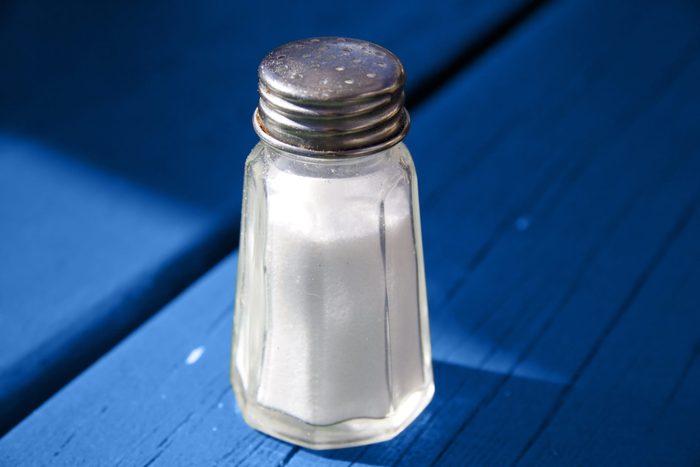
2. Doctors limit salt
“Blood pressure control is complex and regulated by multiple systems in our body,” says Daniel Hermann, MD, an interventional cardiologist with Memorial Hermann in Houston, TX. “But we can influence it a lot by eating a heart-healthy diet—avoiding and limiting sodium.”
He says avoiding processed foods is a good place to start, as they generally contain tons of extra sodium and added sugars. “A diet high in fruit, vegetables, and fiber can lower blood pressure,” Dr. Reynolds adds.

3. They practice mindfulness
“Stress is another risk factor that can be controlled, at least in part, but often goes untreated,” Dr. Reynolds says. “Too much stress in our lives can certainly contribute to increased blood pressure.” Stress can also make us lean toward unhealthy behaviors that compound that risk, such as poor diet, physical inactivity, smoking, and drinking too much alcohol.
Sanjay Naik, MD, a cardiovascular disease specialist at NewYork-Presbyterian Westchester and ColumbiaDoctors says he turns to mindfulness to keep stress levels down. (He aims to keep his social media use in check, too.) A 2022 AHA study found that after six months of participating in a mindfulness program, people experienced an average 5.6 mmHg drop in their systolic blood pressure level (the top number in your score that measures the force your heart puts on arterial walls each beat).

4. They spend time with a pet
Pet companionship is associated with overall better health and well-being. “Research studies show that having a pet may lead to a more active lifestyle, lower blood pressure, and cholesterol levels, and less stress at home, at work, and when managing health challenges,” Dr. Reynolds says. “Even the simple act of petting a dog helps decrease blood pressure.”
Research Shows Owning This Type of Pet Could Extend Your Lifespan
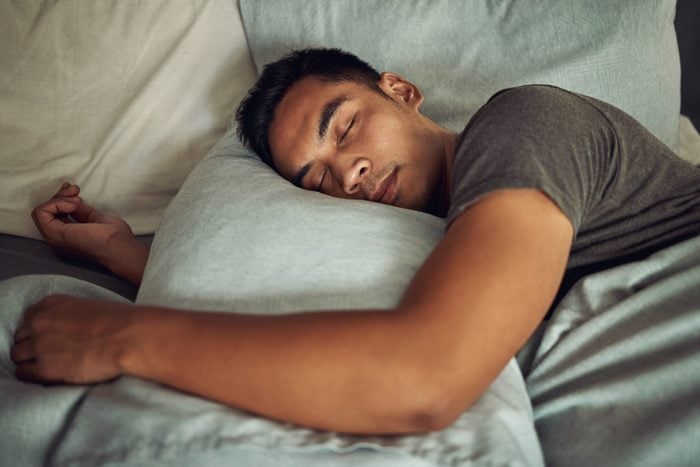
5. They prioritize sleep
The importance of good sleep hygiene also is often underestimated, Dr. Von Schwarz says. “Restless sleep patterns, as well as sleep apnea, increases blood pressure and therefore, regulating sleeping disorders is also an essential part of blood pressure control.”
These 4 Sleep Behaviors Can Help You Live Longer, Says New Research

6. They laugh
“I try to find the humor in life,” Dr. Reynolds says. “People who laugh more tend to have lower blood pressure.”
This is backed by research that’s shown that laughter is associated with improved cardiovascular health, including healthy blood pressure.
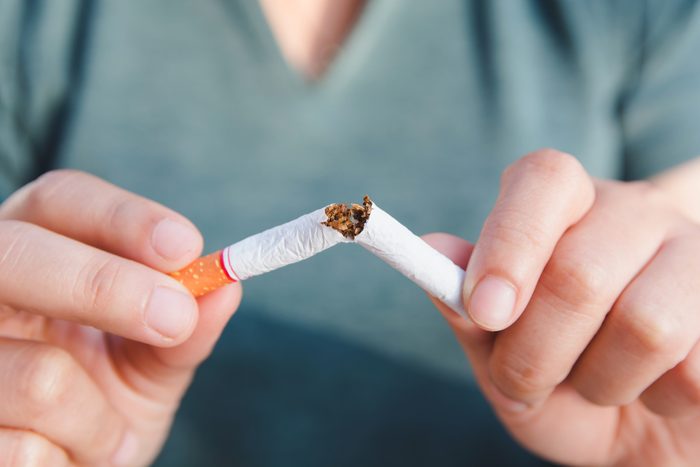
7. They avoid smoking, vaping, and heavy alcohol use
Dr. Reynolds says smoking is the leading cause of preventable death in the US, which includes about one-third of all deaths from heart disease. This includes e-cigarettes and vaping, along with traditional cigarettes. “Too much alcohol increases our risk for high blood pressure, too,” she says. The AHA recommends limiting alcohol use to two drinks per day for men and one per day for women—but if you have hypertension, your doctor may advise you to cut back further.
Here’s What Happens to Your Liver When You Quit Drinking Alcohol

8. They move
“The importance of a routine exercise regimen is often overlooked, since many people think that their blood pressure goes even higher with exercise,” Dr. von Schwarz says. “Even though that is true, exercise keeps the blood vessels elastic, which contributes to better blood pressure control and even lowers blood pressure.”
These Gentle Exercises May Be the Key to a Longer Life, Say Experts
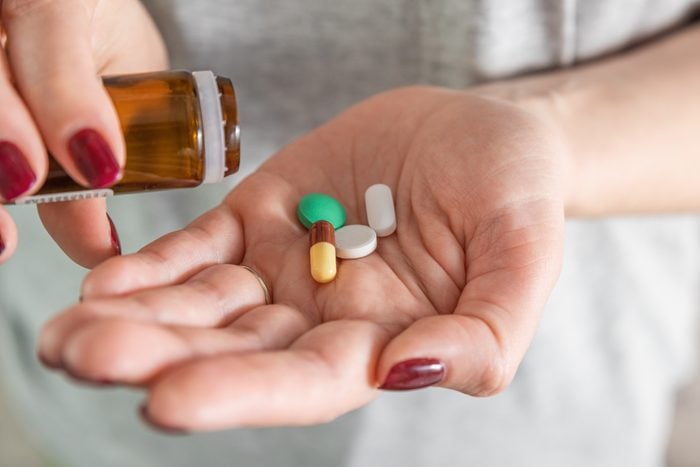
9. Some take prescribed medications
In most cases—around 95%—the reason behind someone’s high blood pressure is unknown, Dr. von Schwarz says. So once you have hypertension, it can be tough to control it without medication. “The fact that [high blood pressure] doesn’t hurt often results in non-adherence to recommended medicines.” He says people think: “I feel good, so why should I take medications?”
Statin Intolerance? Here’s What a Cleveland Clinic Doctor Says You Can Do

10. They don’t skip their annual check-up
Dr. Hermann says it’s important to see your physician regularly to screen for other conditions, like diabetes or high cholesterol, that put you at a higher risk for hypertension and warrant closer monitoring. Also, research shows issues such as thyroid problems and vitamin D deficiency can contribute to high blood pressure, too.
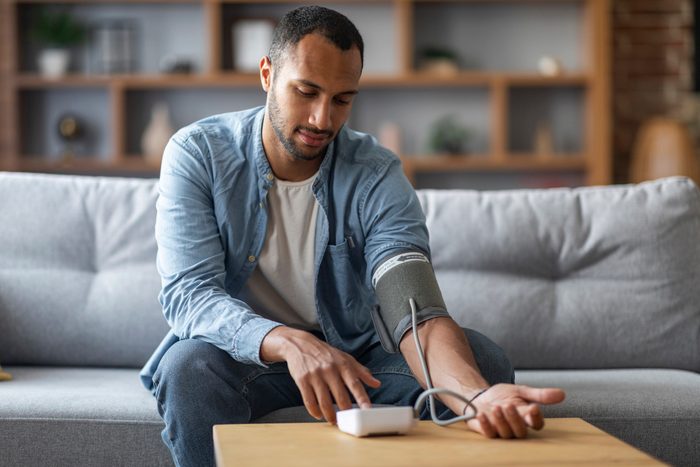
11. They monitor their own blood pressure regularly
Because you can’t “feel” whether your blood pressure is healthy, the only way to monitor it is to have it checked intermittently, Dr. Hermann says. Similar to the AHA research that tells us that almost 40% of people with high blood pressure don’t know they have the condition, other 2023 research found that most Americans don’t know what a healthy blood pressure range is.
Particularly if you’re at risk for hypertension, Dr. von Schwarz says it’s important to avoid what’s called therapeutic inertia, too. This means you don’t just rely on one blood pressure measurement, like what you get at your annual check-up. Instead, he encourages patients to participate in managing their health by taking their blood pressure measurements at home, working toward a goal of a healthy resting blood pressure level—and checking in with their doctor if intervention strategies like lifestyle changes and medication aren’t working.
Follow The Healthy on Facebook, Instagram, and Twitter. Keep reading:
